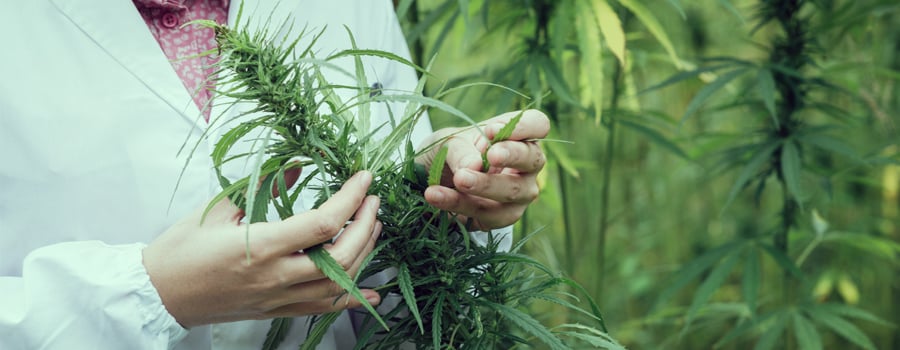.

How Does Cannabis Affect Bipolar Disorder?
Cannabis use is popular in patients with bipolar disorder, but only recently have more studies been conducted to determine whether cannabis has potential as a treatment for the illness.
Contents:
Bipolar disorder is a well-studied mental health condition that many non-diagnosed individuals struggle to fully understand. Although pharmaceutical drugs and psychotherapy are the primary treatments for this illness, scientists are increasingly conducting research to gauge the effects of cannabis on different types of bipolar disorder.
WHAT IS BIPOLAR DISORDER?
Bipolar disorder manifests in four varieties, but all types maintain certain characteristics. Also referred to as manic-depressive illness, the cornerstone of this disease involves periods of unusually high energy and ecstasy, also known as mania. Conversely, extremely low mood, fatigue and hopelessness are signs of another symptom: depressive episodes.
FOUR VARIETIES
The varieties are as follows: Bipolar I disorder is what some wrongly assume to be the only variety of this disease. This type is classified by sustained periods of mania, lasting more than a week. Patients diagnosed with bipolar I experience depressive episodes as well, resulting in dramatic shifts in mood from one day to the next. Bipolar I can be incredibly obstructive to one’s daily routine and in some cases requires hospitalization.
Bipolar II is categorized predominantly by extended depressive episodes. While patients of this variety may struggle with occasional manic episodes, their condition is highlighted more by consistently “low” moods, lack of energy and decreased ability to function.
Cyclothymia[1] is the third category of bipolar disorder and affects individuals in a less cut and dry way than the previous two. This type is characterized by sustained periods of hypomanic and depressive behaviors that don’t necessarily reach the heights of full manic or depressive episodes.
The fourth and final type of bipolar includes all other specified and unspecified varieties of this disease as diagnosed by health professionals.

HOW CANNABIS COMES INTO PLAY
As cannabis is further reinforced as medically beneficial, it only makes sense that researchers and physicians consider how cannabinoids interact with bipolar disorder - for better or worse. Involving the treatment of brain disorders, cannabis has been thrust back and forth between research camps as both beneficial and detrimental. This is largely to do with the illicit nature of the substance and its historical connotations as being devoid of medical benefit.
A SPECTRUM OF EARLY FINDINGS
There have been some preliminary studies of cannabis on bipolar disorder, most of which were performed on relatively few participants. A recent study[2] conducted at Lancaster University (UK) sampled twenty-four patients with bipolar disorder who used cannabis at least three times a week. The study was conducted using the experience sampling method (ESM) where participants recorded their findings via diary entry over a period of six days. Each observed how cannabis affected their manic and/or depressive episodes.
Ultimately, the findings of this study were somewhat inconclusive. The study concluded that while the manic and depressive symptoms of some participants increased with cannabis use, most patients who used it enjoyed its positive effects and were more likely to consume it for enjoyment, than as a medicine. The clear issues surrounding this study are the small sample size and lack of a control group, which make it difficult to assess broader trends throughout many patients.
THC VS. CBD
When performing studies of cannabis use for the treatment of bipolar disorder, researchers must consider the differences between consumption methods. Depending on the type of cannabis consumed, scientific findings may be skewed by errors in consistency from study to study. For instance, bipolar patients who smoke cannabis concentrates with extremely high THC levels are likely to experience more adverse mood responses than those smoking CBD rich strains of cannabis flower.
This is because THC is known to incite acute anxiety and paranoia in some consumers, while CBD is effective in mediating the negative effects of psychotropic symptoms. It’s also essential to recognise the type of strain being studied, whether it is sativa, indica or hybrid. Each will produce different results individually and on a larger scale. The lack of comprehensive scientific inclusion of different cannabis methods makes it difficult to maintain consistency across samplings.

DOES CANNABIS CAUSE BIPOLAR DISORDER?
Although cannabis has been found to temporarily mimic the symptoms[3] of some psychiatric disorders, there is no evidence that cannabis use causes chronic brain disorders or mental illness. In bipolar patients, the effects of cannabis depend on the variety of the illness, as well as the patient’s cannabis smoking habits, height, weight, among other influential factors.
Researchers who argue that cannabis is beneficial in treating bipolar disorder focus on the effects of cannabinoids on the human endocannabinoid system. When consuming cannabis, cannabinoids such as THC bind to endocannabinoid receptors[4] known as CB1 and CB2 in different parts of the body and can potentially encourage mood stabilizing effects.
A study performed in 2010 at the University of Oslo, Norway tested 133 bipolar patients on the effects of cannabis on neurocognitive functioning[5]. The results were encouraging, concluding that there is indeed evidence to support the theory, but that it requires additional research in order to be effectively implicated.
CANNABIS FOR MANIA VS. DEPRESSION
Cannabis use is higher[6] in bipolar patients than average, and largely reflects their desire to alleviate depression or come down from a manic episode. While some anecdotal studies have followed patients whose mania was culled by the sedative effects[7] of CBD and THC, others use it during depressive periods to experience the uplifting sensation of euphoria.
THE CONCLUSION?
The takeaway from current research of cannabis on bipolar patients is that there simply aren’t enough compelling studies to say definitively if it can effectively treat bipolar patients. While it has been shown to spur symptoms of anxiety and mania, many patients use cannabis not as medication, but for their personal enjoyment when they are not experiencing an episode. Cannabis offers a wide range of medical implications and could very well be one of the keys to natural mental healthcare in the near future.
- NIMH » Bipolar Disorder https://www.nimh.nih.gov
- The Relationship between Bipolar Disorder and Cannabis Use in Daily Life: An Experience Sampling Study http://journals.plos.org
- Cannabis-Induced Bipolar Disorder with Psychotic Features https://www.ncbi.nlm.nih.gov
- Introduction to the Endocannabinoid System - NORML - Working to Reform Marijuana Laws http://norml.org
- Opposite Relationships Between Cannabis Use and Neurocognitive Functioning in Bipolar Disorder and Schizophrenia - PubMed https://www.ncbi.nlm.nih.gov
- The Relationship between Bipolar Disorder and Cannabis Use in Daily Life: An Experience Sampling Study https://www.ncbi.nlm.nih.gov
- SAGE Journals: Your gateway to world-class journal research http://journals.sagepub.com



































